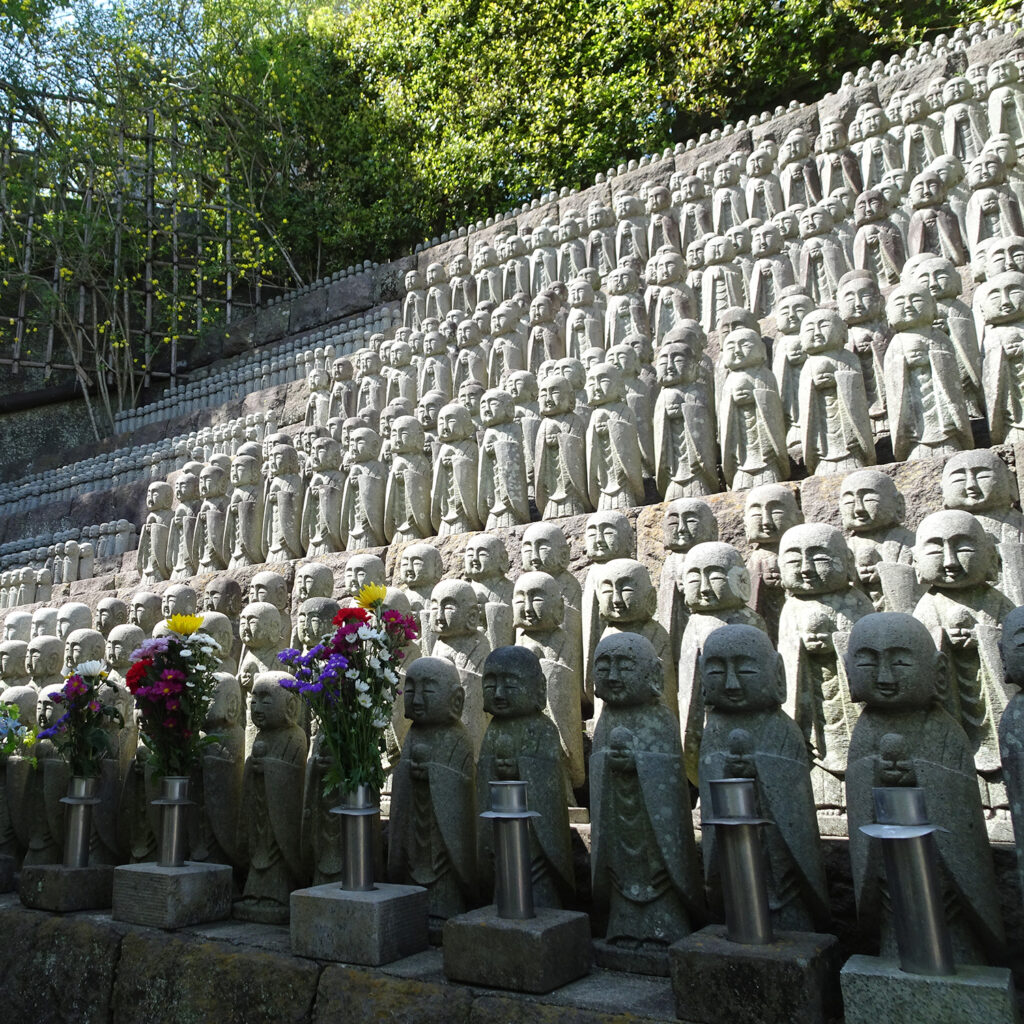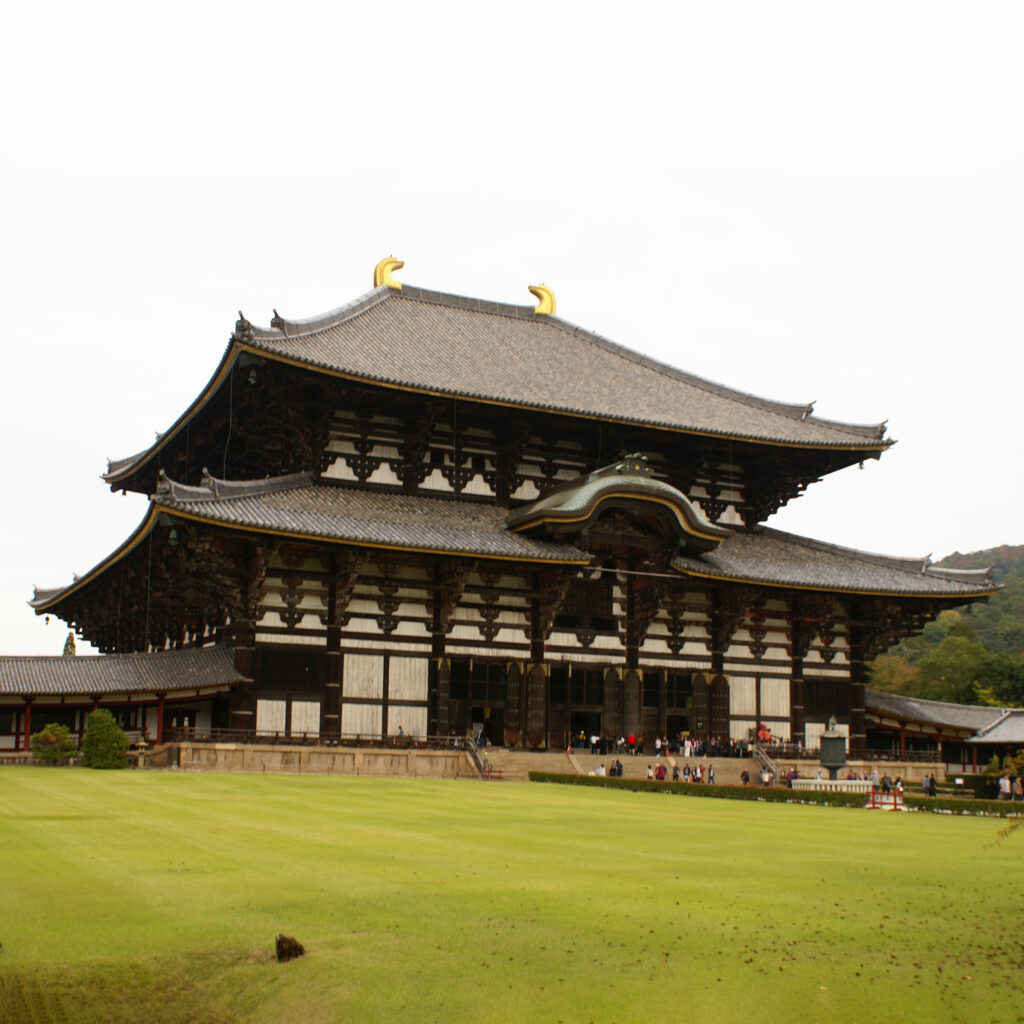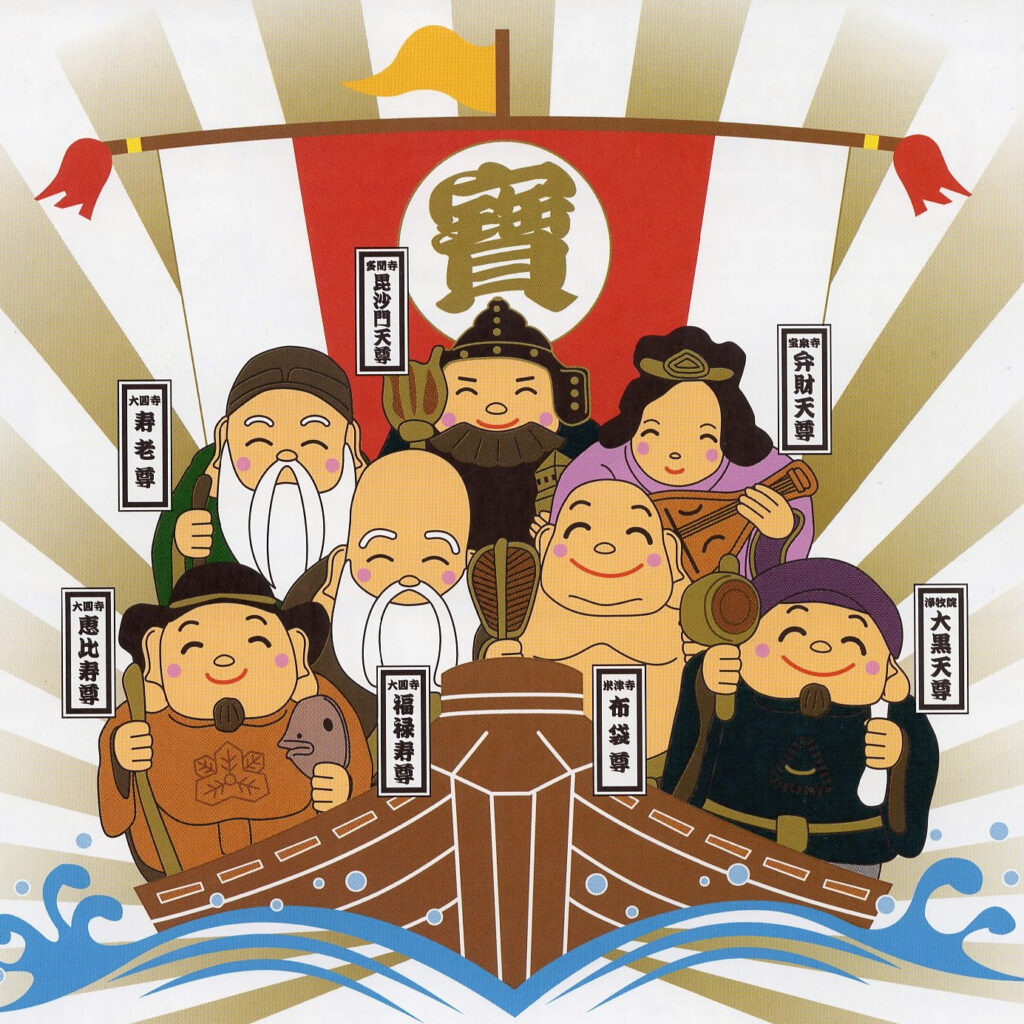Jizo, also known as jizobosatsu, are very popular Buddhist deities in Japan. They are representations of Bodhisattva, enlightened beings who have chosen to remain on earth to help living beings attain enlightenment.
Jizo are often represented as stone or wooden statues, usually about 1 meter high and wearing a red robe. They are often associated with the protection of children and travelers, as well as compassion and mercy.
The history of jizo dates back to ancient India, where they were considered protectors of children and travelers. Over time, this veneration spread to China and Japan, where Jizo became a popular figure in Buddhist culture.
In Japan, jizo are revered throughout the country and are often found in Buddhist temples, Shinto shrines, and even in public streets and parks. Parents and families who have lost a child or fetus may erect jizo statues in their honor, and these statues are often surrounded by toys, clothing, and sweets as offerings.
Jizo are also associated with the protection of travelers, especially pilgrims who travel the sacred roads of Japan. Jizo statues are often placed along roads and hiking trails to guide travelers and protect them from the dangers of the road.
In addition to their role as protectors of children and travelers, jizo are also considered compassionate and merciful beings. Believers may pray to the jizo for healing, protection and compassion. Offerings of sweets, toys and other items are often placed before jizo statues to thank them for their benevolence and protection.
find representations of Jizo monk on our store



